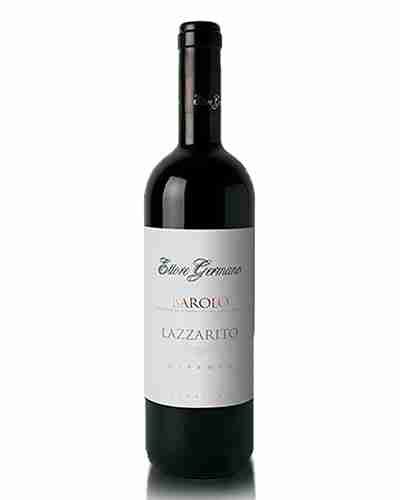Intense garnet red with light orange reflections. Small red berries with hints of sweet spice and licorice. The palate is smooth and velvety with great elegance, on the finish a sweetness to the tannins that linger.
Barolo DOCG Riserva Lazzarito 2015 – Ettore Germano
£89.00 Original price was: £89.00.£69.95Current price is: £69.95.
18 in stock
Shipping fee is £10.
Enjoy free shipping on orders over £150.
Fast delivery!
Delivery within
1 to 3 days
The best discount
Receive a 2% discount when you purchase 6 or more bottles.
Receive a 5% discount when you purchase 12 or morebottles.
The grapes to produce the Barolo DOCG Riserva Lazzarito Ettore Germano are hand harvested and then de-stemmed and lightly crushed before undergoing alcoholic fermentation in vertical steel tanks. Maceration takes place for about 50 -60 days with several pump overs happening daily, to aid in the extraction of color and tannin. After racking and malo-lactic fermentation, the wine is then placed into botti grande (large casks) of 2,000 liter for a period of 36 months.
Since 1856, the Germano family has seen four generations of devotion to both their viticulture and excellent wine production. The estate lies on one of the most important crus of Serralunga d’Alba named “Cerretta”, a hill with a wide winegrowing area facing South, South-West. Germano’s 6.6 hectares of vineyards are dedicated to the cultivation of Chardonnay, Barbera, Dolcetto and Nebbiolo, while a smaller area is reserved for Riesling and the indigenous white grape Nascetta. The Germano family is blessed with some of the very best vineyards, owning vines in Lazzarito (a true grand cru), Cerretta, Prapò and now, thanks to an inheritance, even the legendary Vigna Rionda, which many experts consider the single greatest Barolo vineyard of all. Sergio and his wife Elena manage the estate from viticultural to winemaking to sales. Sergio’s wines have steadily improving for the last decade, and today we are proud to represent one of the most talented winemakers from Piedmont. Having all of his red vineyards situated within Serralunga, enables Sergio to make characteristically powerful, muscular and intense wines, that are the biggest, richest and most long-lived of all Barolo. Using what may appear to be very modern techniques (stainless steel), the driving force behind the winemaking here is actually solid tradition. Fermentation is short, around 12-15 days, in open wooden fermenters and maturation is completed in a variety of barrel sizes (225 litres and upwards) made from up to two year old French oak. Ettore Germano is devoted to both passion and tradition but also evolution. The believe that the smallest details can vary the final result, which is seen in their viticultural and vinicultural work.





Reviews
There are no reviews yet.